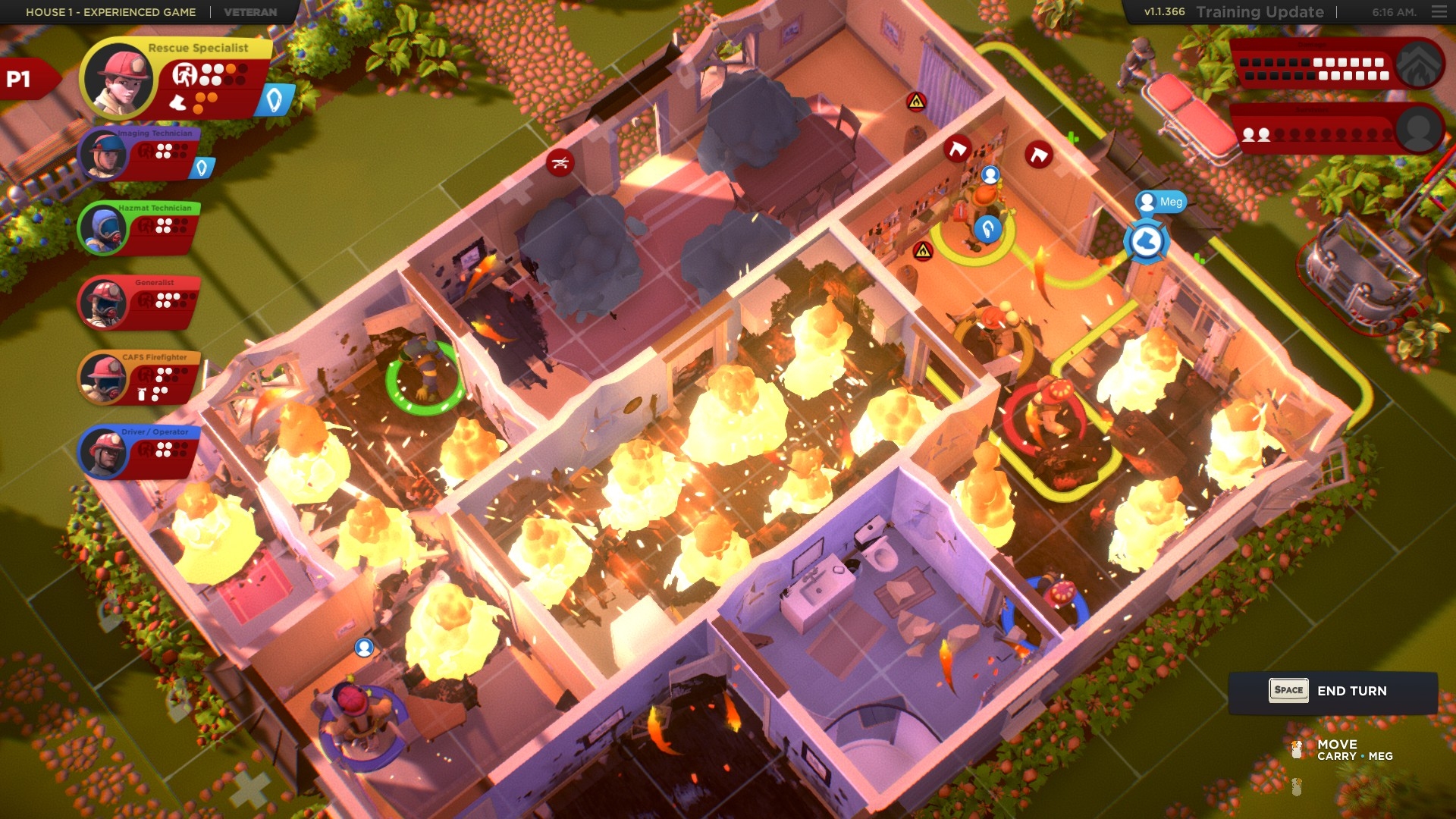Beware! The air quality on Tally-Ho Corner is going to be abysmal this week, and thanks to the tangle of quivering hoses on our puddle-strewn drive, there will be trip hazards galore. Keen to address one of my stranger blindspots (While I’ve dabbled with the odd wildfire tactics title in the past, for some reason I’ve not explored games in which buildings and their contents are the primary flame fodder) I plan to audition a number of firefighting games.

The first anxious auditioner is a 2018 digital port of a 2011 board game. Currently half price (£7.50) on Steam, boredom-banishing Flash Point: Fire Rescue explains its handful of easily grasped rules swiftly and clearly. Whether you are playing in the simple ‘family’ mode or the more involved ‘advanced’ mode, the goal is the same: rescue seven or more people from a blazing building before hungry flames cause a collapse or claim three lives.
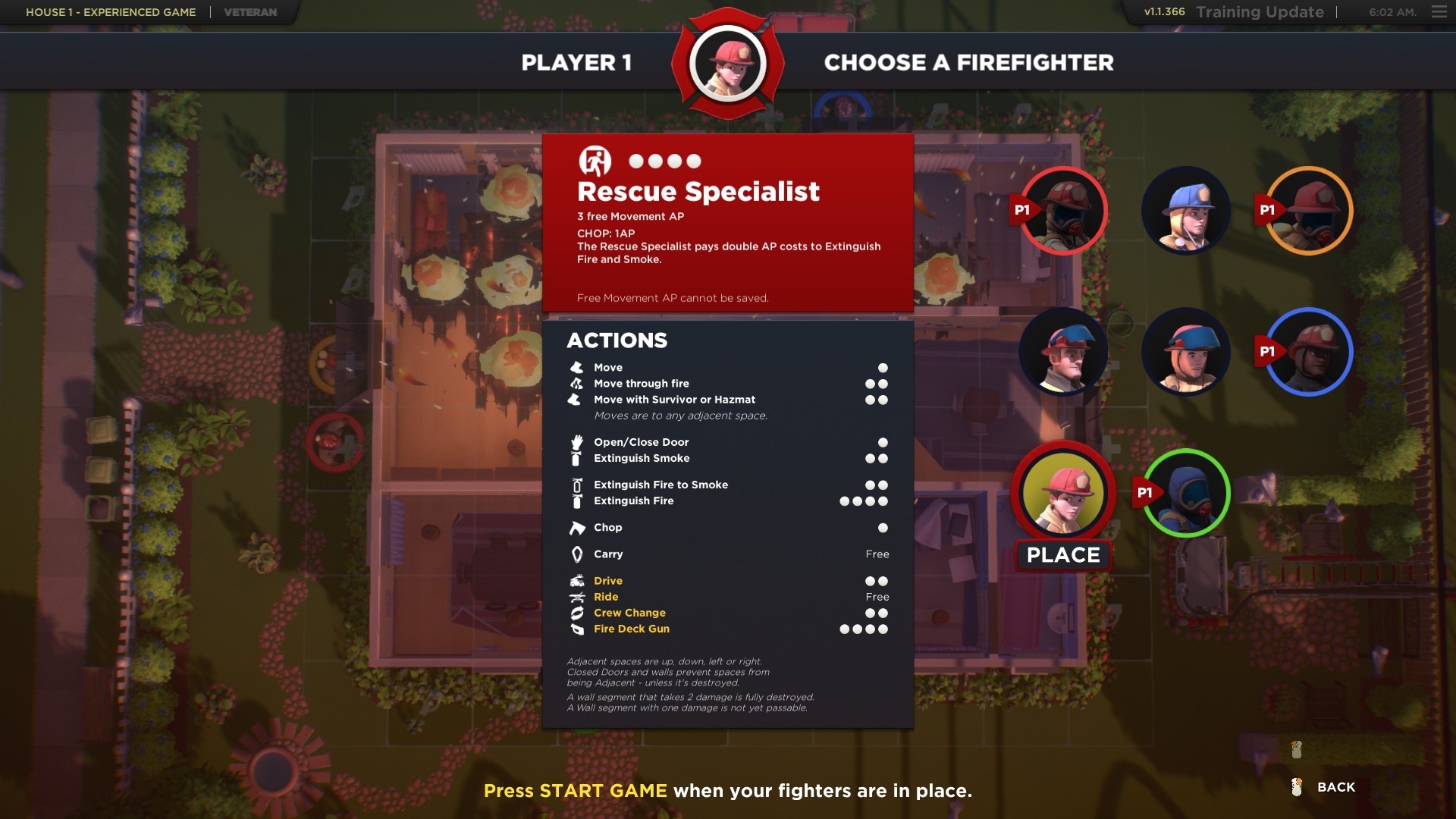
Generic in ‘family’ games and endowed with specialisms in the more complex alternative, your six unkillable firefighters act in sequence using APs to execute actions like fire extinguishing, door opening, victim dragging, and wall destruction. The temptation to make your own entrances and shortcuts can be powerful, but as every ad-hoc doorway removes a potential explosion barrier and weakens the integrity of the building, bringing collapse closer, it pays to pause for thought before swinging a fire axe. Happily, Flash Point’s turnbased structure means there’s always plenty of time for tactical brainstorming.
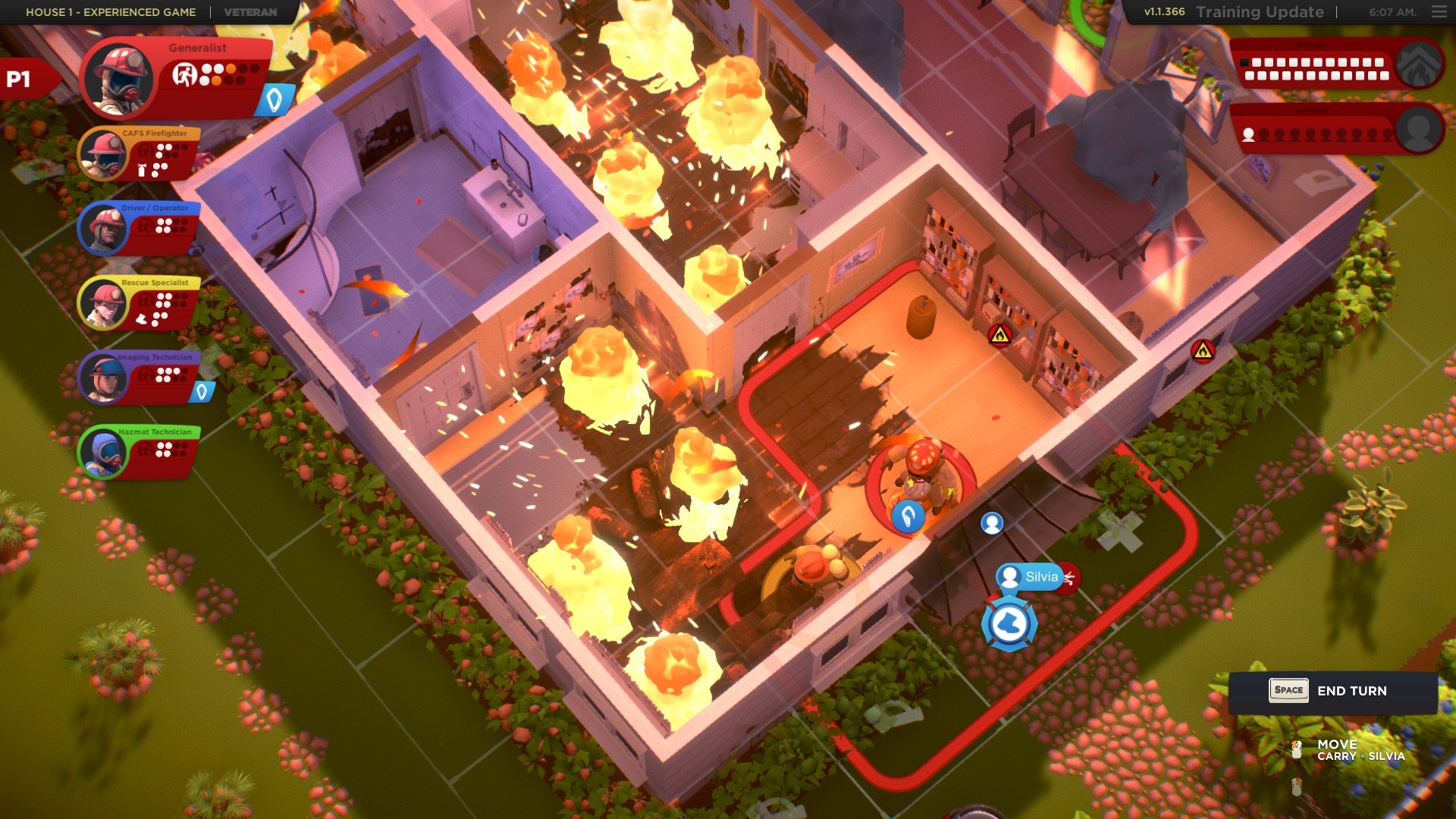
By the end of hour #1 I’d turned my back on family mode and was beginning to experiment with ‘veteran’ – the second of the game’s three difficulty levels (I think I’m right in saying, difficulty only effects the number of tiles ablaze at the start of a game). Although I was enjoying myself, I’d also come to the very personal conclusion that designer Kevin Lanzing had traded slightly too much realism for playability in certain areas.
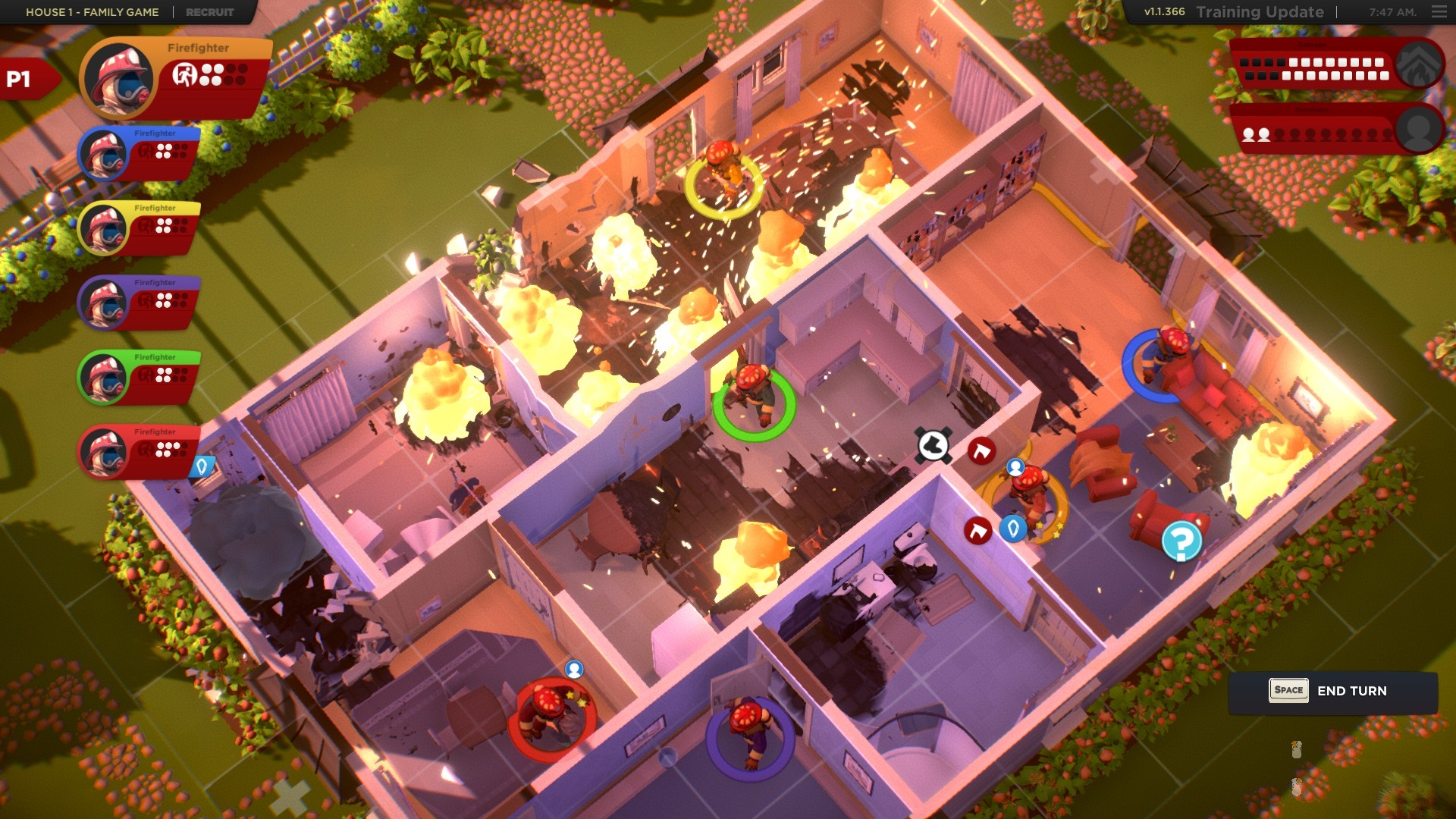
The clumsiest piece of shorthand has to be the haphazard way fire spreads. After each firefighter has spent their APs, a behind-the-scenes dice roll drops a spark on a completely random map square. Whether that spark generates smoke, turns smoke into fire, or causes an explosion, depends on what is happening in the targeted tile at the time. While this mechanic guarantees excitement, I’d argue it robs blazes and therefore firefighting of a lot of potential naturalism.*
* If you owned the analogue version, it would be easy to increase fire propagation realism through house rules.

It’s a similar story with victim placement and firefighter vulnerability. Only three victims are randomly placed on the board at the start of the game. The rest spawn as fires progress, meaning your units may have to return to previously scouted/doused rooms to rescue ‘unnoticed’ civilians. As firefighters that get caught in fires and explosions are teleported outdoors rather than removed from sessions, Flash Point isn’t exactly gritty.
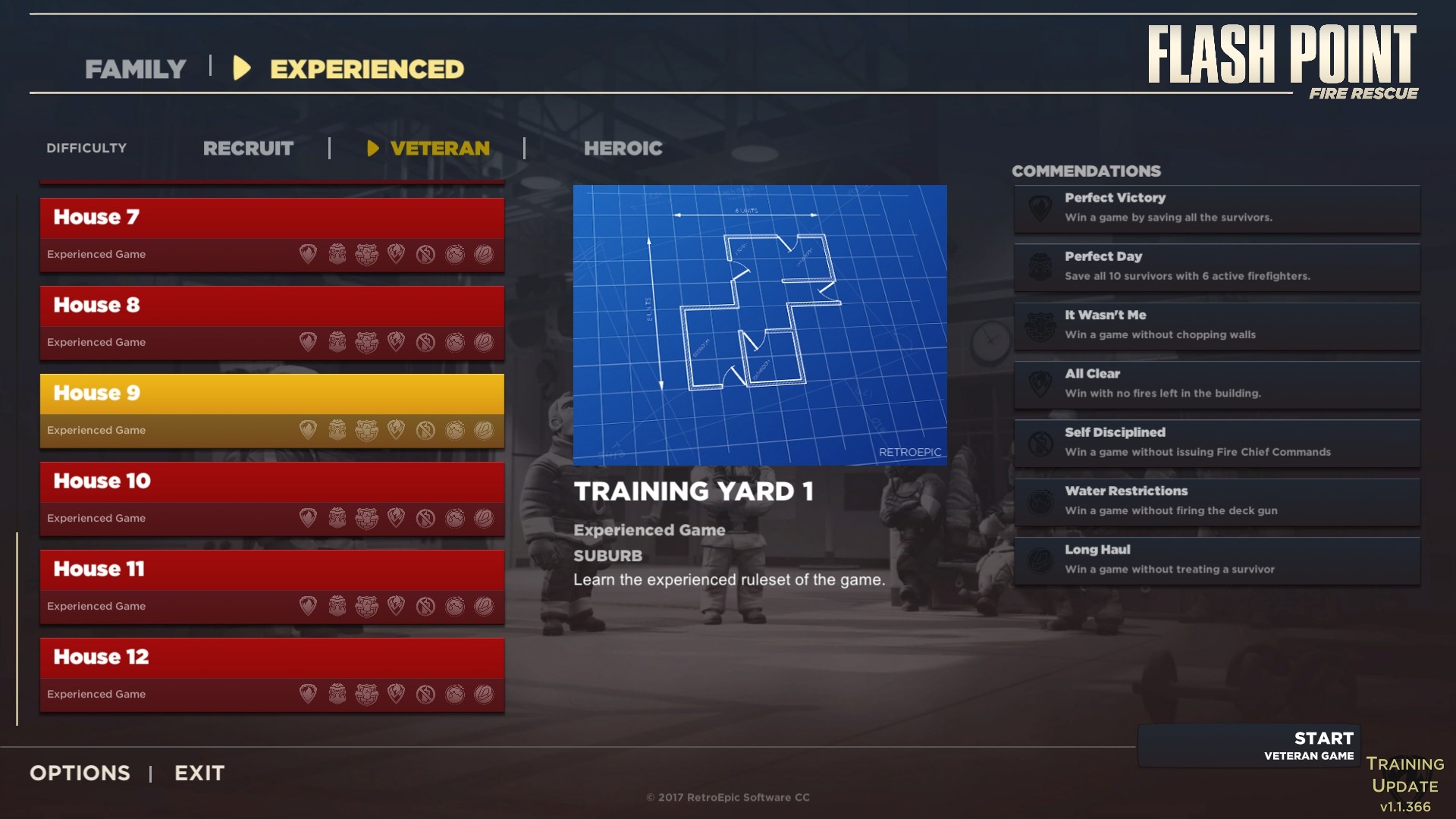
There’s only twelve maps, but probably because fire spread is so unpredictable, teams are customisable, and difficulty levels and optional ‘commendation’ goals can be used to inject extra variety and challenge, you won’t find many replayability complaints in the Steam forum. What you will find are grumbles about occasional crashes and the sad lack of DLC, and an online multiplayer mode. Porters RetroEpic Software seem to have abandoned their essentially likeable creation not all that long after it launched which is a great pity.

